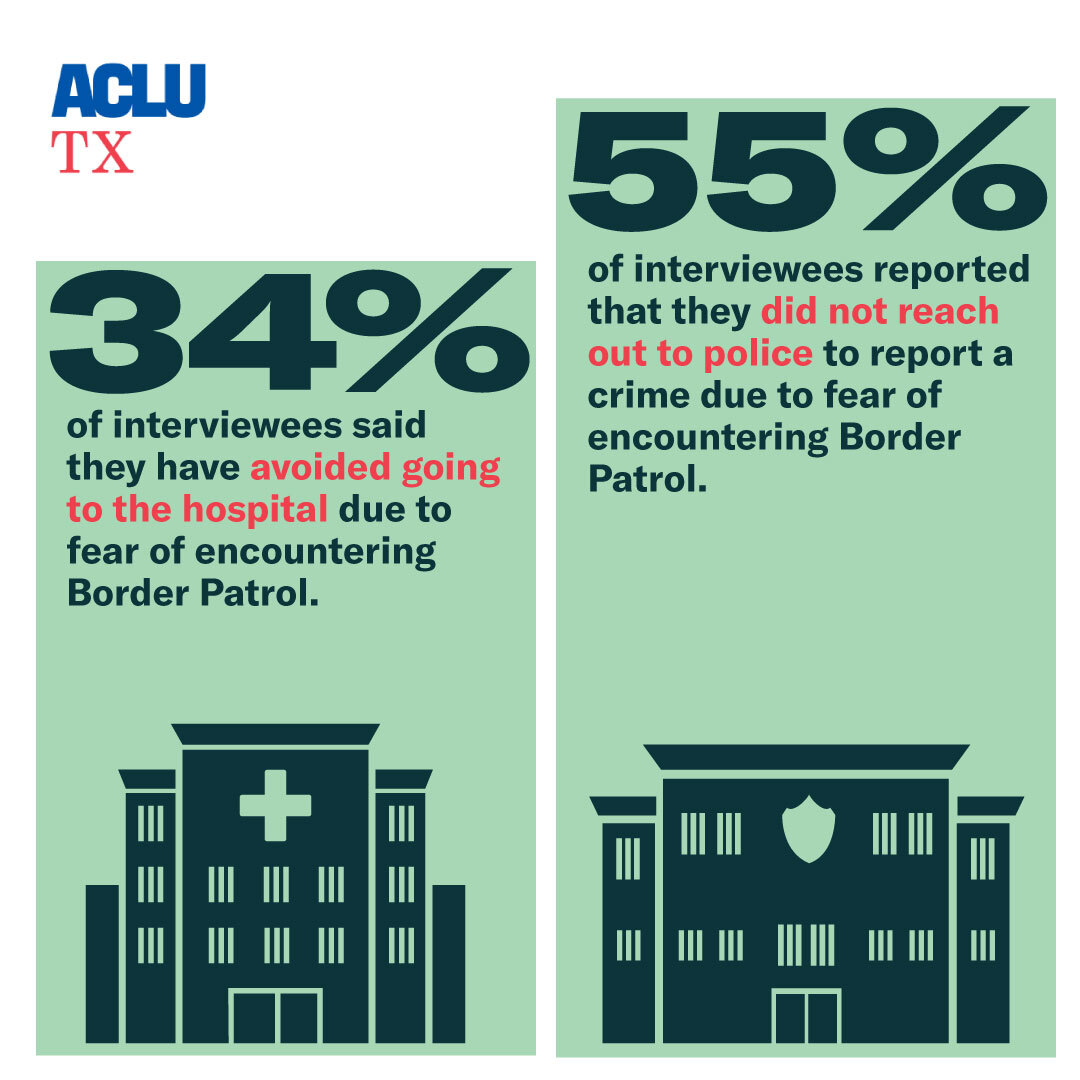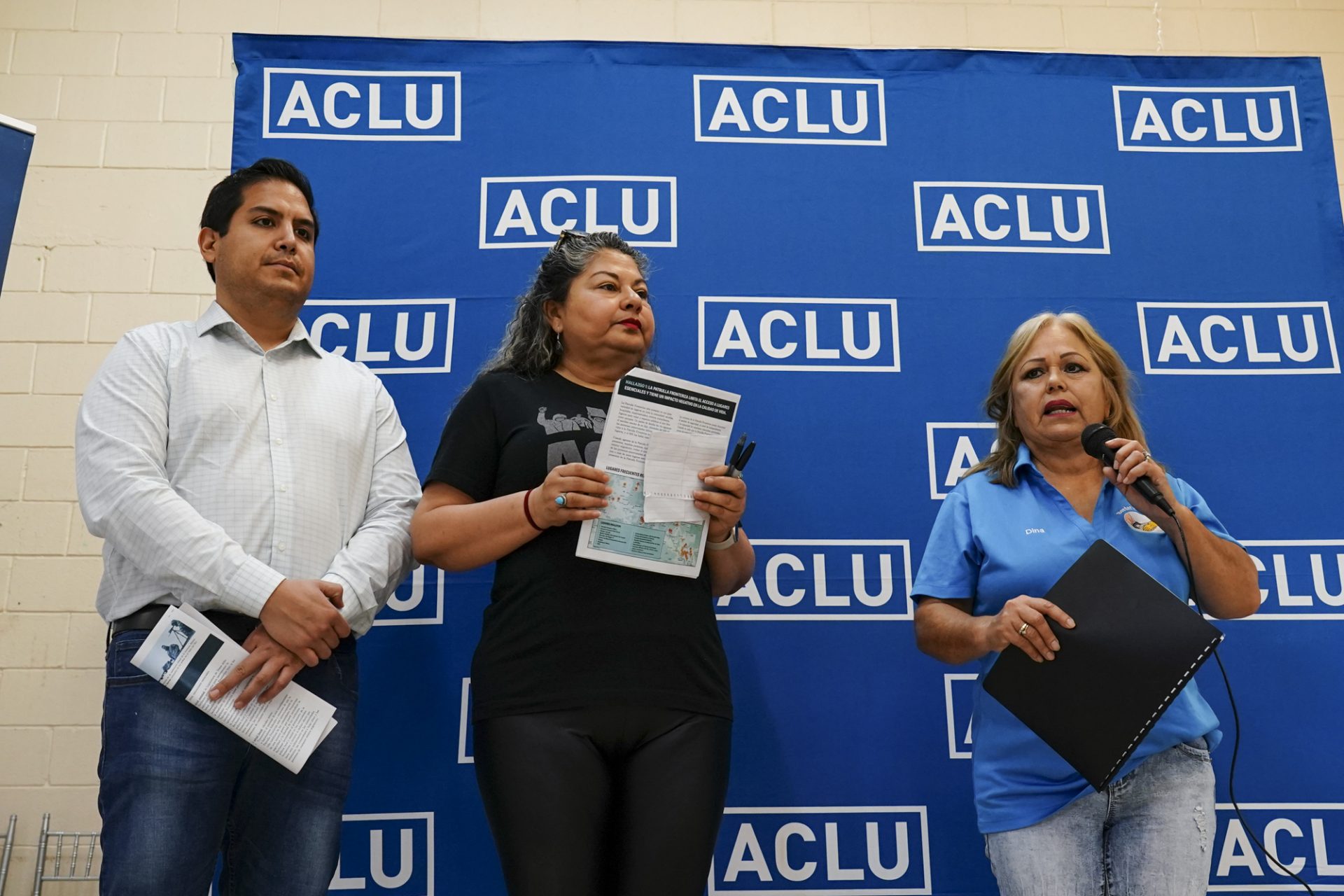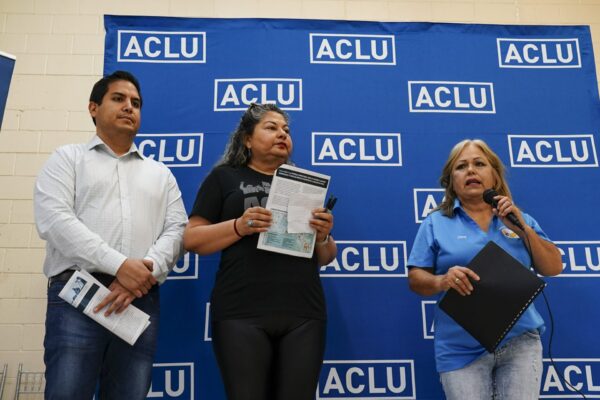In a region as vibrant as the Rio Grande Valley, there are several constants that help shape the fabric of our community: sunny days, elote entero with white not yellow corn, strong familial bonds. Yet the ability for residents here to exist comfortably and safely within our own community is stunted by another looming constant: the overwhelming presence and threat of Border Patrol agents embedded throughout the region.
Exposure to Border Patrol agents begins at a young age in the RGV. We remember witnessing agents march in local parades dressed in full defensive gear, staff recruitment stations at high schools, idle in parked cars at convenience stores or fast food restaurants waiting to detain people grabbing a bite, or patrol near classrooms at our local university. Their constant presence in our childhood feels like a twisted rite of passage. Nobody can understand the true impact that Border Patrol has on our home without having lived here and observed agents inundating so many aspects of our daily lives.
Border Patrol’s presence does not improve the safety of our community but instead makes people feel unsafe and less likely to seek out fundamental needs.
A new ACLU of Texas report shows those feelings are common for border residents, whether undocumented, Green Card holders, or U.S. citizens.
My colleague Maria Cordero led efforts to survey 152 RGV residents about their interactions with Border Patrol and their feelings about the agency’s heavy presence here. The people we interviewed represent a diverse range of immigration statuses — U.S. citizens, the largest group, represent 34%, followed by those who preferred not to say at 28%, and people with resident status at 22%. But the results show that encountering Border Patrol directly or even from afar affects their daily routines and well-being.

Interviewees told us that they are more likely to avoid grocery shopping, going to community parks, or attending schools when heavy patrols are in the area. The over-policing can prevent people from getting necessary care because they fear a Border Patrol encounter if they need to go to the hospital for emergencies or report domestic violence.
Harmful federal policies have fueled such explosive growth in the number of Border Patrol agents that community members assume getting pulled over frequently or seeing a patrol car staked out at a school bus stop is normal. Border Patrol agents can be found almost everywhere throughout our community.
This report demonstrates the detrimental impact that Border Patrol’s overwhelming presence has on our lives. Encountering law enforcement several times a day doesn’t make anyone feel safer. Instead, you feel like you could be stopped for no reason — even as a U.S. citizen — and have your whole day disrupted or worse.

ACLU of Texas attorney Bernardo Rafael Cruz, policy and advocacy strategist Maria Cordero, and Dina Nuñez of Border Workers United address attendees about their report’s findings Tuesday, Feb. 21, 2023, during a press conference. (Denise Cathey/The Brownsville Herald)
In our surveys, interviewees entrusted us with intimate stories they shared about Border Patrol that touch on feelings of pain, family separation, detention, deportation, and reduced access to basic healthcare, food, and education services. These moments provide a clearer understanding of the harm Border Patrol inflicts on our community. For example:
- One woman, an organizer who works to educate locals about resources available at a community center in Brownsville, said people often avoid the community center out of fear, even though they offer free medical services. Border Patrol agents patrol the area just outside and often follow people in.
- According to a parent, Border Patrol agents sometimes follow behind their children’s school bus. This scares many of the children, either because they themselves are undocumented or because they worry about their undocumented parents, who wait for them at the bus stop.
- For domestic violence survivors, this fear of police means staying in dangerous situations. One survivor said: "I was scared to call the police in my past situation of domestic violence. I lived many years in that situation."
- One RGV resident said Border Patrol agents stopped her car because her headlights were off — even though it was during the day.
Our communities should not live in perpetual fear of Border Patrol intimidating us as we care for our children, go to work, get groceries, and visit the doctor.
We want this report to inform and energize our community members and policymakers to fight for a reduction in the number of Border Patrol agents across the border, as well as demand transparency and accountability for law enforcement agencies whenever they violate our rights. Our stories should be at the center of any government action that affects our lives.
All Texans — including those of us who live along the border — deserve to feel safe, no matter where we live or how long we’ve been here.
Victoria Guerrero (she/they) is a digital communications coordinator for the ACLU of Texas. They were born and raised in the Rio Grande Valley and call Brownsville home. The love she holds for her community is what sparked their desire to become active in political organizing.

